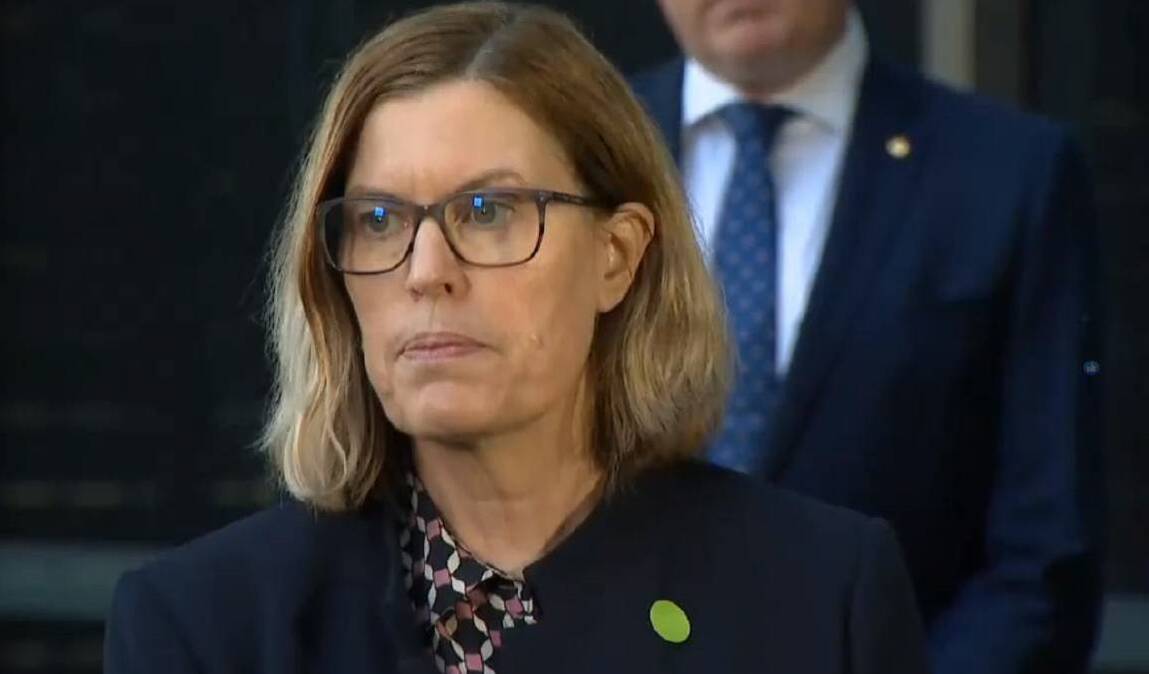
Adults with a terminal illness who will die within six months can access voluntary assisted dying laws in 16 weeks, NSW Health officials said on Tuesday night.
The laws also apply to adults with a neurodegenerative condition who will die within 12 months.
Their expected deaths from illness are based on "the balance of probabilities".
NSW chief health officer Kerry Chant said the process had "important safeguards".
"A critical part of voluntary assisted dying is that patients must maintain decision-making capacity for the duration of the process," Dr Chant said.
"If at any point, they permanently lose decision-making capacity, they are no longer able or eligible to access voluntary assisted dying."
Dr Chant hosted a NSW Health webinar on the subject on Tuesday evening. The event coincided with Dying to Know Day, which aimed to encourage conversations about death.
The NSW government passed voluntary assisted dying laws in May last year.
Dr Chant said patients can "already make informed choices that may result in their death".
"For example, refusing life-saving treatments if they have capacity to make those decisions."
She said the aim was for voluntary assisted dying to be "accessible without cost".
However, she said some people may incur out-of-pocket costs from GPs that don't bulk-bill.
"There will be accessible pathways that are free," she said.
Julie Letts, manager of the NSW Voluntary Assisted Dying Care Navigator Service, said the required "substance" would be dispensed from a pharmacy outreach service, which involved a "team of experienced pharmacists".
"They provide advice, education and assessment for patients."
Dr Chant said that "a formal request to access voluntary assisted dying may only be made to a medical practitioner".
She said voluntary assisted dying could be done at home, but "there will be some challenges" if people want to self-administer the substance.
Dr Sara Townsend, a GP with the NSW Voluntary Assisted Dying Access Service, said the process was "entirely patient driven".
"At each stage, the patient may decide to pause or stop the process," Dr Townsend said.
"Voluntary assisted dying should complement a patient's right to access high-quality palliative care.
"It is a requirement of the legislation that conversations around voluntary assisted dying also include other end of life options."
Dr Chant said the laws would be "especially important for those in oncology, haematology, neurology and respiratory medicine".
"There is only going to be a small group of individuals eligible for voluntary assisted dying. Those individuals will be connected to healthcare providers," she said.
Dr Chant addressed concerns about people being coerced into voluntary assisted dying.
"If there was an issue where a family member or the patient themselves felt that they were being pressured to do voluntary assisted dying and not offered palliative care, that should be escalated [to a manager] ... immediately," she said.
Ms Letts said "coercion can be subtle in families".
"Co-ordinating practitioners would need to stay alive to the possibility of that and very carefully explore that if they had any suspicions about that," she said.
Dr Chant said there could be situations where "family members are contributing to a sense of devaluing a person's life".
"If it goes to the extreme, then that is an offence. We really need to be alert to that. This situation can manifest itself in other settings in health. It's not a totally new concept."
Lifeline 13 11 14







